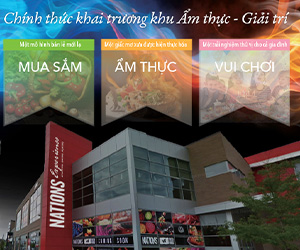In a speech at the Economic Club of Canada, Foreign Minister Melanie Joly warned that the current global stability, built from the ruins of World War II, is “cracking.” The risk is very high for Canada.
Joly’s speech comes at a time when Canada is witnessing major conflicts on the global stage and deteriorating relations with two major countries. The conflict between Israel and Hamas in Gaza has raised concerns about a larger conflict in the Middle East, while Russia continues its war with Ukraine.
Furthermore, Canada’s relations with India and China, two major global nations, have hit a low point. Diplomatic tensions with India escalated after Prime Minister Justin Trudeau publicly stated in September that Canada had “reliable evidence” that Indian government agents may have been involved in the assassination of Hardeep Singh Nijjar, a Sikh community leader. Indian officials denied these allegations.
Relations with China have also soured as the “Two Michaels” were detained in 2018 after Canada’s federal police arrested Huawei’s Chief Financial Officer, Meng Wanzhou, at the request of extradition to the United States. Both were released in 2021 after the U.S. withdrew its request for Ms. Meng. Tensions escalated further at the end of last year when Canadian media began reporting allegations of foreign interference by China in Canada’s elections and society.
Joly’s speech outlined two key principles in Canada’s foreign policy approach: protecting sovereignty to ensure resilience against global threats, and using pragmatic diplomacy to cooperate with countries with differing perspectives and prevent international conflicts. Canada also plans to invest in security and economic development in the Arctic, counter foreign interference, and expand diplomatic presence in various regions.
Regarding protecting Canada’s sovereignty, Joly emphasized partnering with the United States, investing in NORAD, strengthening Canada’s military presence in NATO in Eastern Europe, and expanding partnership relations with countries like Japan and South Korea in the Asia-Pacific.
In the Arctic, Canada will focus on enforcing its sovereignty over its northern territory and waters, including protecting the Northwest Passage, a gateway to the Arctic.
In practical diplomacy, Joly emphasized the need to engage with non-aligned nations “except in some cases.”
She said, “With global security challenges being posed, our security being posed, we cannot rely only on old friends. We will increase broader engagement and need to reach out to new partners in a large alliance of nations worldwide.”
She also emphasized the expansion of Canada’s diplomatic reach, with new embassies in Eastern Europe, Rwanda, and Fiji. The world is currently undergoing a geopolitical rebalancing, and Canada aims to address these challenges by strengthening the international system and making it more comprehensive. Canada is committed to addressing the evolving global security context and ensuring its diplomats are equipped to tackle these challenges.






